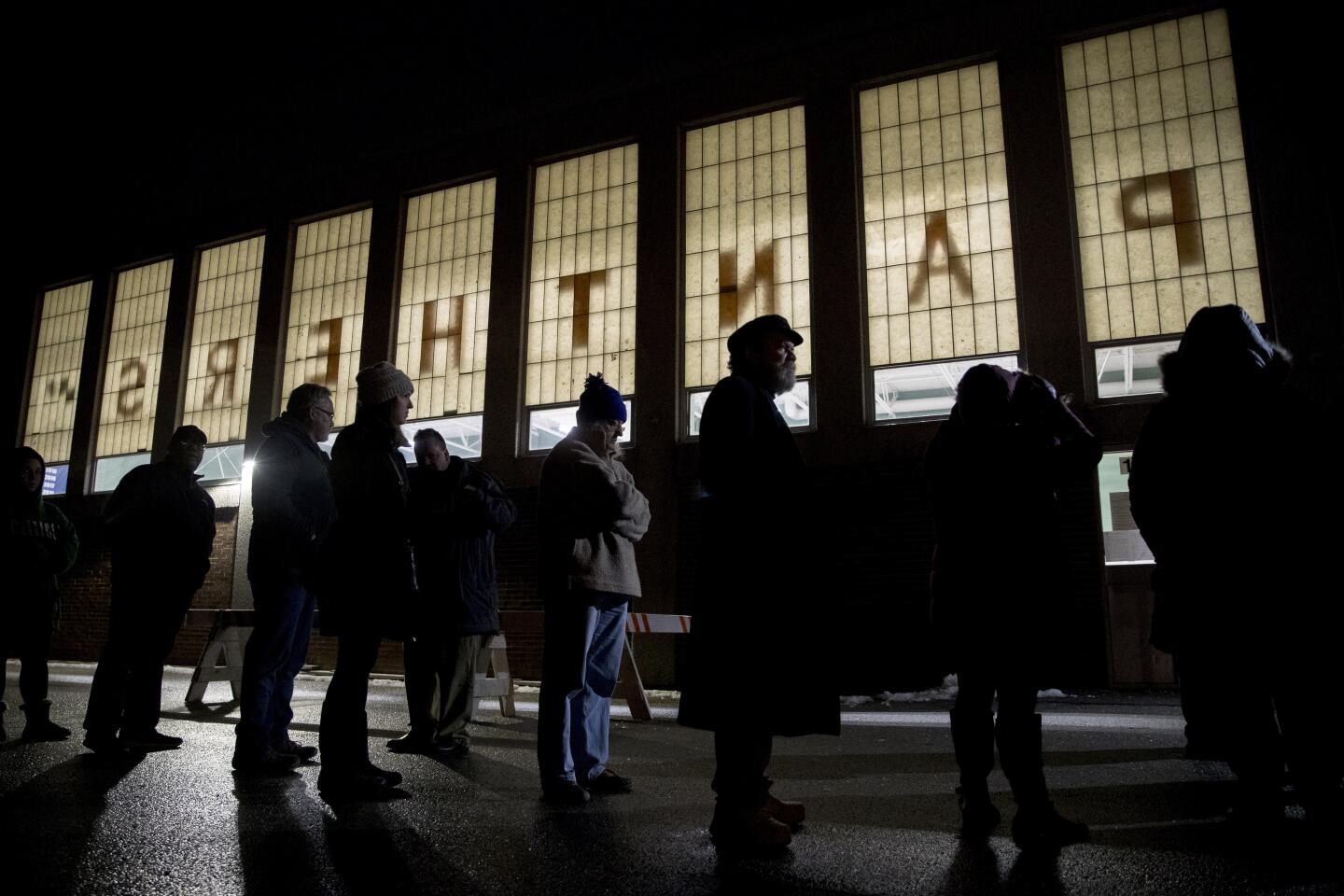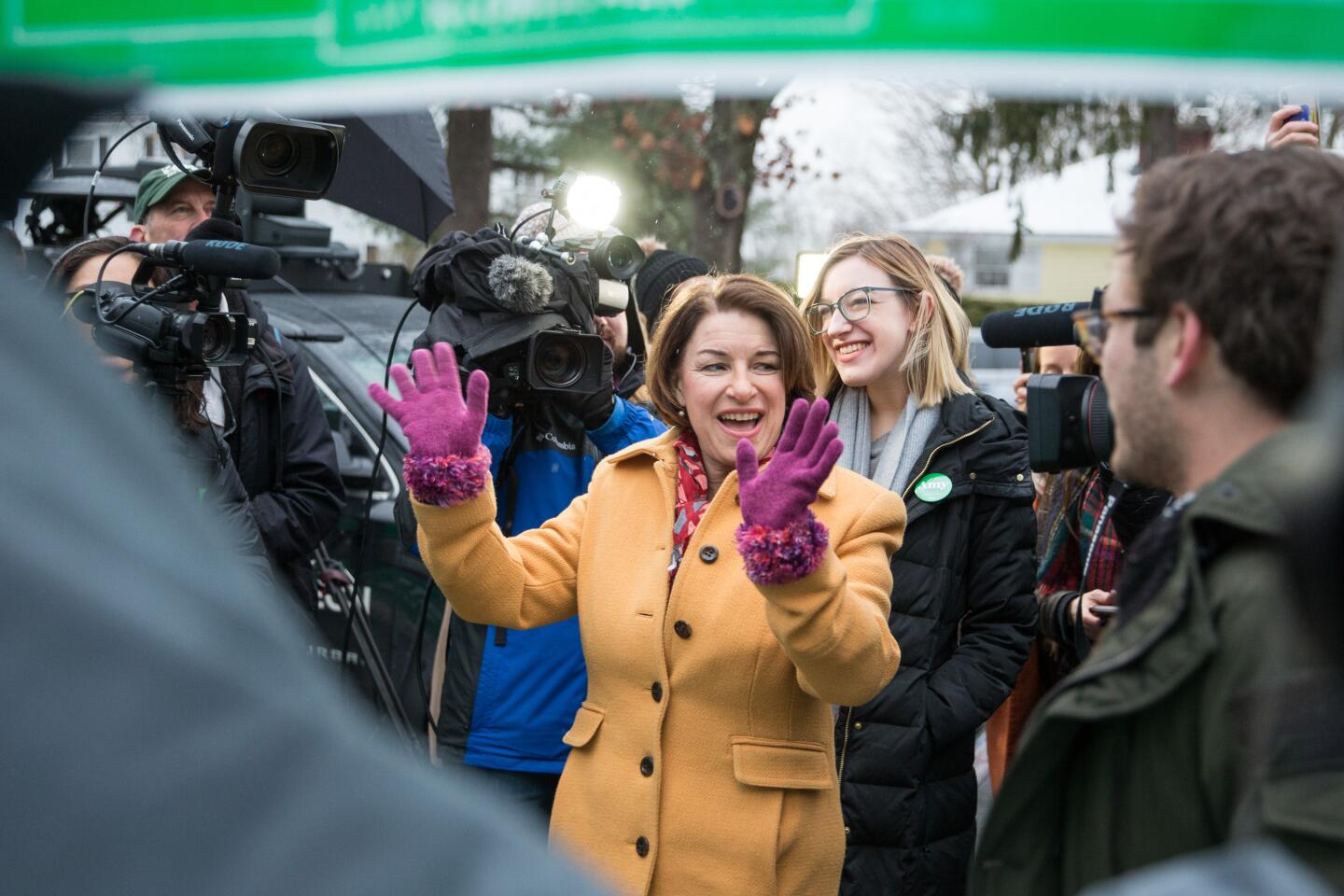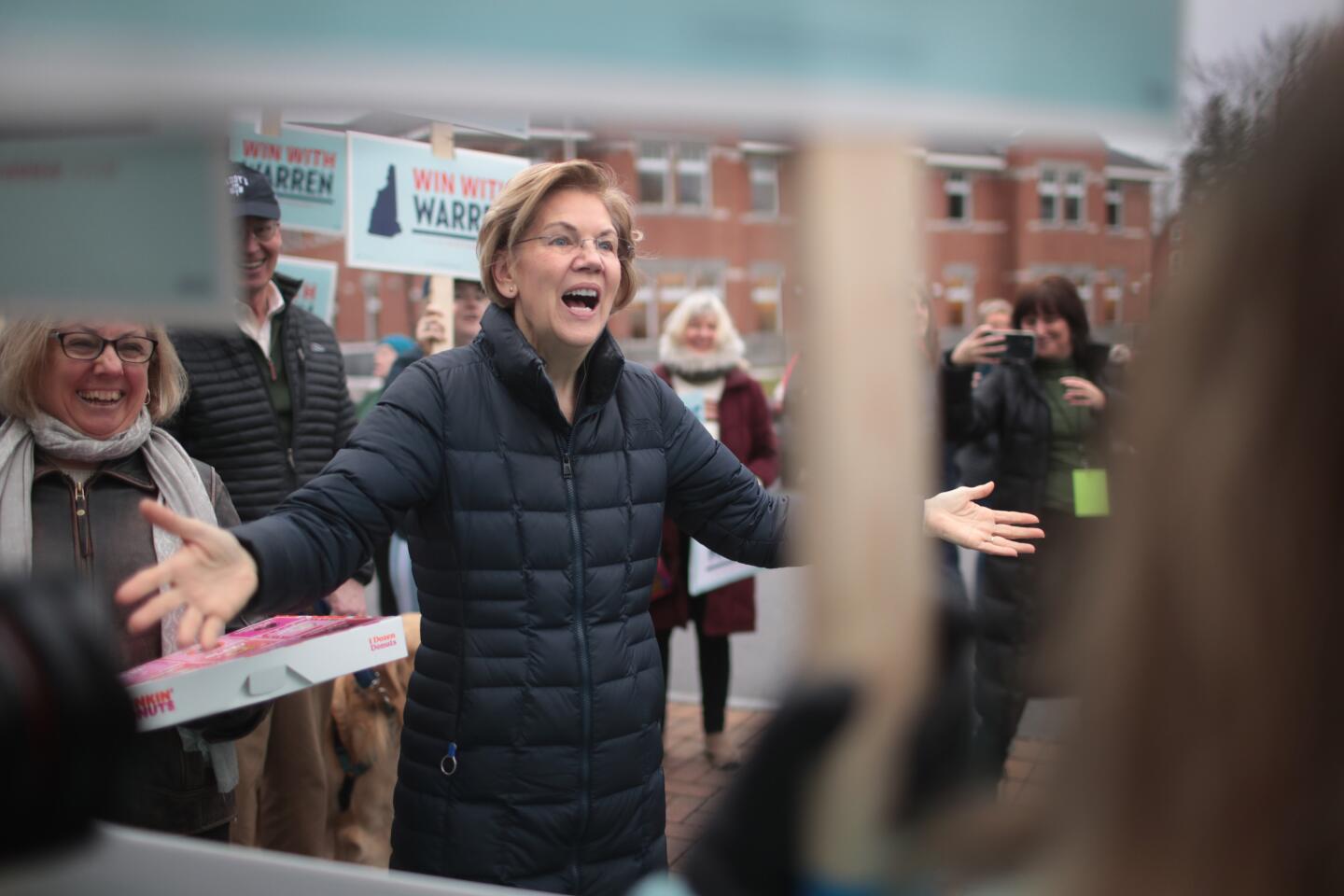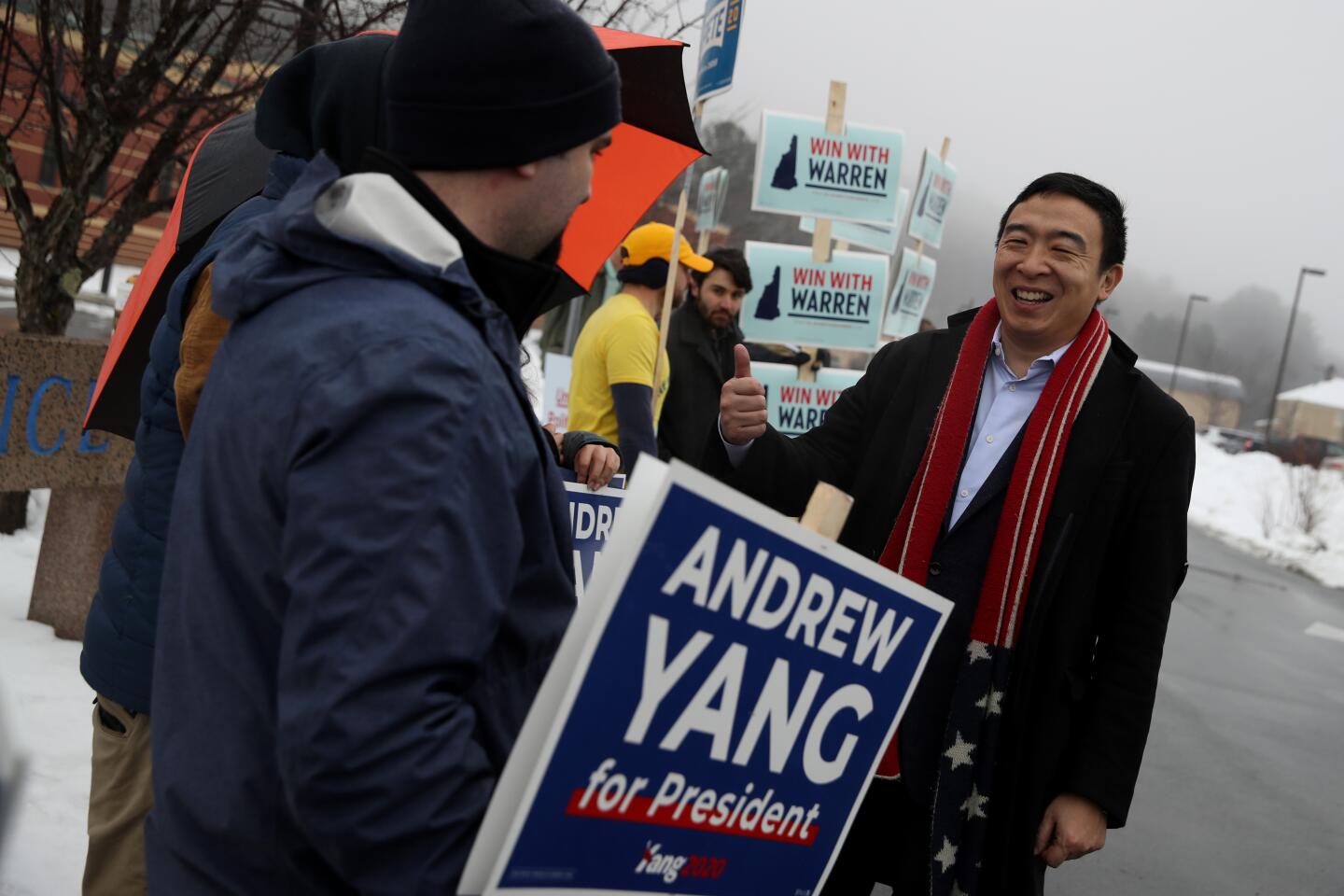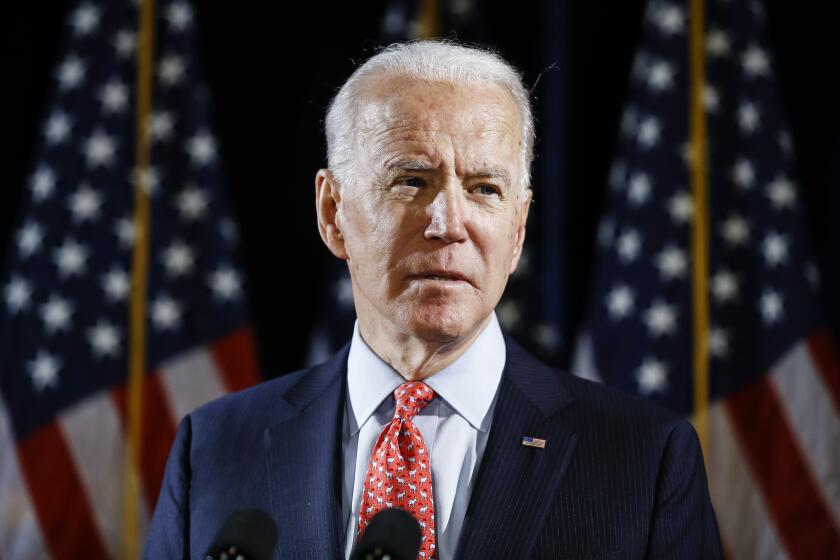What you need to know about the 2020 New Hampshire primary
- Share via
Tuesday night marks 100 years of New Hampshire being the first-in-the-nation primary state. It will also, hopefully, be the same night the state announces who won its Democratic primary.
The Democratic field didn’t narrow after the Iowa caucuses, which were marred by technical issues and delayed results. The question is whether New Hampshire will provide more clarity. Sen. Bernie Sanders appears to have solidified support among liberals, but the moderate vote is still up for grabs.
Here’s what you need to know about tonight’s Democratic primary election:
What time do the polls close?
It varies by location — polling places can’t close until 7 p.m. Eastern, when the majority of locations will shut their doors. Some, however, will stay open until 8 p.m. A few dozen New Hampshirites will also cast votes in small towns that traditionally open their polling locations from midnight until every eligible voter has cast a ballot.
Who’s on the ballot?
There are a few dozen names on the ballot, including nearly all the major candidates still in the race, some who dropped out, and others most voters have never heard of before.
Former South Bend, Ind., Mayor Pete Buttigieg and Minnesota Sen. Amy Klobuchar are battling to be the main moderate alternative to Sanders, with former Vice President Joe Biden falling behind in polls. Massachusetts Sen. Elizabeth Warren needs a strong finish after coming in third in Iowa to Sanders and Buttigieg.
Also on the ballot: Colorado Sen. Michael Bennet, U.S. Rep. Tulsi Gabbard of Hawaii, former Massachusetts Gov. Deval Patrick, former hedge fund manager Tom Steyer and businessman Andrew Yang.
The field is down to Joe Biden now that Bernie Sanders ended his presidential campaign. Here is the Democrat heading for a battle with President Trump.
Wait, I feel like someone’s missing
Former New York Mayor Michael R. Bloomberg opted to skip qualifying for the ballot in all four early-voting states in favor of focusing his time and vast fortune on the 16 primaries happening on March 3, also known as Super Tuesday.
Will New Hampshire run more smoothly than Iowa?
The bar has been set low, but primaries are way less complicated than caucuses. Primaries are run by state governments, while caucuses are run by political party volunteers. And instead of using a new app, New Hampshire will stick to paper ballots.
How many delegates are up for grabs?
New Hampshire has 24 national delegates. There are 16 district-level delegates divided between the state’s two congressional districts, five at-large delegates and three pledged party leader and elected official delegates. Candidates need to get at least 15% of the vote in a district or statewide to reach the delegate threshold. If no candidate reaches 15% — which is unlikely based on current polling — the threshold is half of whatever the front-runner’s vote percentage is in the district.
Who can vote in the primary?
The primary is open to registered Democrats and independent voters who request the Democratic ballot. Voters must be 18 years old on or before Feb. 11. Same-day voter registration is allowed.
Aren’t Republicans voting today too?
Absolutely. Eleven candidates are running in the New Hampshire Republican primary. But it’s not much of a contest.
President Trump’s most prominent challenger, former Massachusetts Gov. Bill Weld, won 1.3% in the Iowa caucuses to Trump’s 97.1%.
Former Rep. Joe Walsh of Illinois is also on the ballot, but he dropped out of the race after the Iowa caucuses. He’s since vowed to help elect the eventual Democratic nominee — he told CNN he’d rather have a “socialist” in the White House than the current occupant.
John is a special correspondent.
GET LIVE UPDATES AND RESULTS >>>
More to Read
Get the L.A. Times Politics newsletter
Deeply reported insights into legislation, politics and policy from Sacramento, Washington and beyond. In your inbox twice per week.
You may occasionally receive promotional content from the Los Angeles Times.
